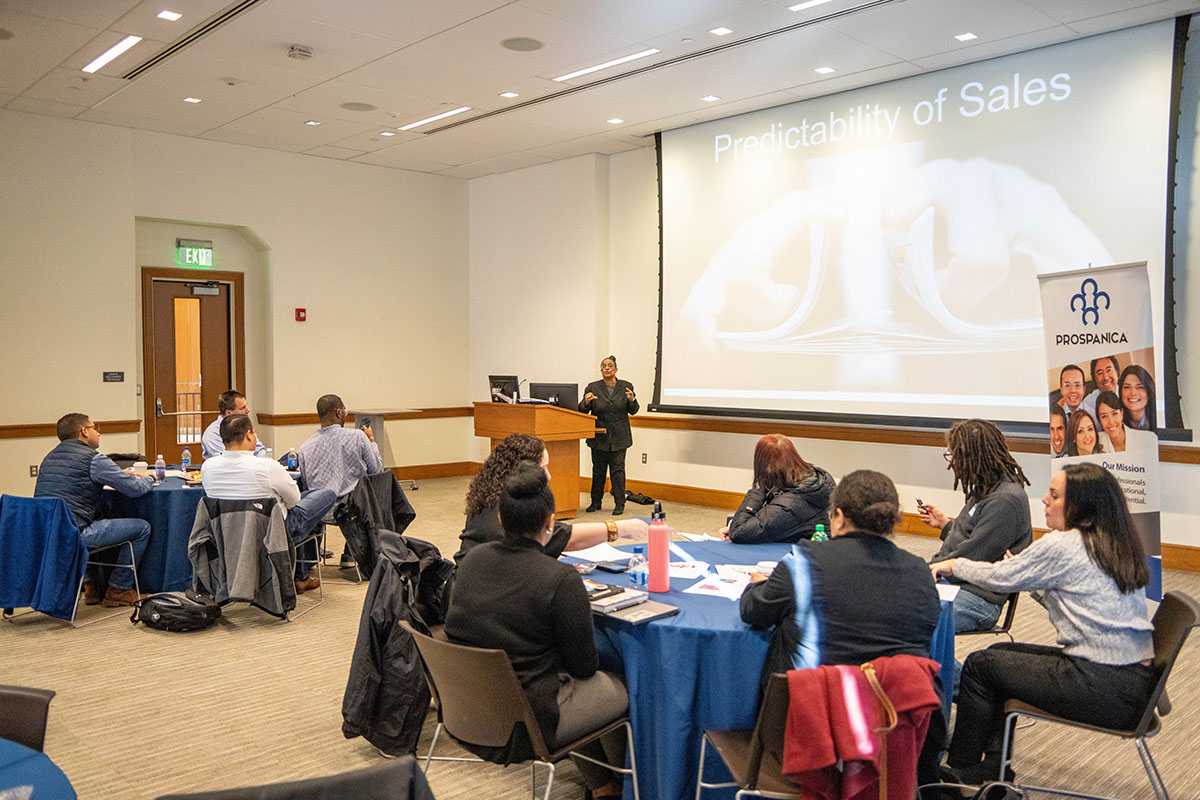
How can you get along with other executives in your company?
Karla Hill of GPS Career and Business Strategies shared key tips during a workshop held during the 5th annual Prospanica ERG Summit.
On Dec. 2, 2022, Prospanica Philadelphia held their 5th annual Employee Resource Group (ERG) and Diversity Leadership Summit, providing information for Hispanics in business to utilize as they managed their own company.
A segment of the summit was a workshop designed to teach entrepreneurs how to gauge others’ interests and priorities to best work with them. The workshop was hosted by Karla Hill, Founder and Principal Consultant of GPS Career and Business Strategies.
One of the concepts Hill discussed was speaking the same “language” as other people. Knowing someone’s priorities, their knowledge, or their position can help when trying to connect with or influence someone.
Hill used writing for an audience as an example, discussing how technical terms and acronyms are limited to those industries, which the use of could alienate readers who do not understand the concepts being referenced.

This mindset can be applied in many different ways, from being inclusive to race and gender, to bridging the language used by different generations.
RELATED CONTENT
Every person has their own motivations for why they pursue the goals they do. Hill explained how these systems can be broken down into five parts, known as the DRIVE Sales System.
Each primary motivator has their own strengths and weaknesses that need to be kept in mind, or they may begin to struggle at work.
The DRIVE system is composed of five parts: Director, Relator, Intellectual, Validator, and Executive.
- Director: Creative and enjoy challenges and their own independence. Can struggle with feeling a lack of freedom or independence.
- Relator: Focused on interpersonal relationships, community, and networking. Can face insecurity and get back some of what they give to others.
- Intellectual: Review books, speeches, research, or other informative pieces and are dedicated to learning and sharing new information. Can be stalled when working with incomplete information or when unable to use what they have learned.
- Validator: Provide and seek recognition for work done. Can become unmotivated when they do not receive validation.
- Executive: Task oriented, productive, and seeks results. Can suffer when they feel a lack of control or success, or overwhelmed with multiple goals.
No one aspect is superior to another as everyone incorporates all of these elements into their work, though most tend to prioritize one segment over the other as they work.
Hill describes this as the 20/80, the measurement of how much of an audience you lose when approaching from one specific motivator, as only other people with similar motivations will connect with you.
For someone to thrive at a workplace, they need both work ethic and passion. Both of these elements can be gained through understanding those in the workplace and how best to manage the people working at your company.











LEAVE A COMMENT:
Join the discussion! Leave a comment.